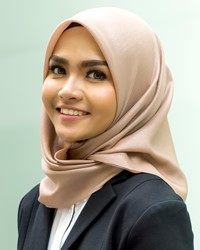Malay in Korea, South

Photo Source:
Copyrighted © 2026
Faiz Zaki - Shutterstock All rights reserved. Used with permission |
Send Joshua Project a map of this people group.
|
| People Name: | Malay |
| Country: | Korea, South |
| 10/40 Window: | No |
| Population: | 9,600 |
| World Population: | 18,869,300 |
| Primary Language: | Malay |
| Primary Religion: | Islam |
| Christian Adherents: | 1.00 % |
| Evangelicals: | 0.50 % |
| Scripture: | Complete Bible |
| Ministry Resources: | Yes |
| Jesus Film: | Yes |
| Audio Recordings: | Yes |
| People Cluster: | Malay |
| Affinity Bloc: | Malay Peoples |
| Progress Level: |
|
Introduction / History
The Malay people of Peninsular Malaysia make up the majority of the Malay peoples in Malaysia, Brunei, and Singapore. In Malaysia, people are classified as Malay by the federal constitution if they speak their national language, Bahasa Malaysia, practice Malay customs, and are followers of Islam. The Malay of Peninsular Malaysia find much pride in their cultural heritage and place great emphasis on family and community dependence. Their cultural heritage and family units are tested when they move to other countries like South Korea where they are a small minority.
While the Malay are spread throughout southeastern Asia, the majority are located in the country of Malaysia. There, they make up about 1/3 of the population, sharing the country with Chinese and Indian minorities. The dispersal of the Malay was in progress by the fifth century A.D. when the Malay began to dominate local trade in southeastern Asia and long-distance trade between northwestern India and southern China. Their domination of sea trade continued until the 1500s and even into the European colonial period.
Where Are they Located?
The vast majority of Muslim Malays live in either Malaysia or Indonesia, but there is a diaspora of them in numerous countries including South Korea.
What Are Their Lives Like?
In general, courtesy is a very important aspect of Malay society. Most of their groups are loosely structured, their commitments are not strong, and loyalty to a group is not as important as being courteous. The "pure Malay" is considered to be kind towards women, children and animals; introspective; polite; slow to speak; passive; and indolent. Yet, when angered, a Malay may lose all self-control and get into a frenzy. Of course, there are many variations of a "true Malay," depending on the countries in which they now live. Cleanliness is typically a feature of most Malay homes. As Muslims, they generally do not eat pork or drink alcohol.
Most Malay families consist of a husband, his wife, and their children. In Malay society, marriage is expected of every person. According to Islamic law, a man may have as many as four wives. However, most marriages are monogamous (having only one wife). Although many marriages are arranged, the consent of both parties is required. There are no descent or kinship groups among the Malay.
The strongest characteristic of Malay identity that remains consistent regardless of their location is their adherence to the Islamic faith. Malays worldwide recognize a Malaysian law that defines a Malay as "a person belonging to any Malayan race who habitually speaks Malay (or any Malayan language) and professes the Muslim religion."
What Are Their Beliefs?
Islam was brought to Malaysia by Arabic and Indian traders many centuries ago, and the Malay people have come to embrace and ardently follow the Islamic faith. All Malay people are considered Islamic though levels of devotion to the religion are varied. Even those who half-heartedly follow Islam participate in the fasting month, and the Malay people of affluence will go on the pilgrimage to Mecca at least once if not many times during their lifetime.
The Malay have early roots in Hinduism and traces of this can still be seen in certain aspects of their culture such as weddings. For instance, the bride and groom will paint their hands with henna and will sit upon a platform for hours for the guests to admire.
Another divergence from Islam is the use of a bomoh (witchdoctor). Although Islam forbids the use of such a person, many Malay of Peninsular Malaysia will seek the services of a bomoh when they are experiencing a difficult situation or when they need some "magic." Also, they use bomohs for honorable or ignoble purposes. Furthermore, they consult bomohs in order to receive a blessing or a cure; or, on the other hand, in order to curse someone or get revenge.
What Are Their Needs?
Full Bible resources are available in the Malay language, however, most South Korean Malay people do not presently have the advantage of learning about Almighty God from them.
The most pressing need of South Korean Malay people is to understand the truth of the loving God, who has made provision for them to become His children by His full payment of their sins. Who will pay the price to tell them?
Prayer Points
Pray for a "Book of Acts" type of movement to Christ among the Malay Muslims in South Korea.
Pray for the Malay people to understand and embrace that Jesus wants to bless their families and neighborhoods.
Pray for Holy Spirit anointed believers from the Malay people in South Korea to change their society from within.
Pray for a movement in which the Holy Spirit leads and empowers disciples to make more disciples among the Malays in South Korea.
Pray for a movement of Jesus to heal and strengthen Malay communities.